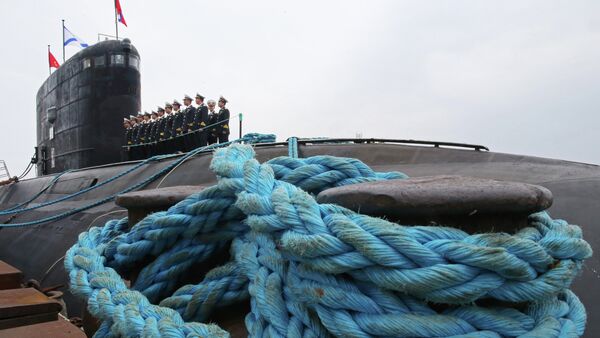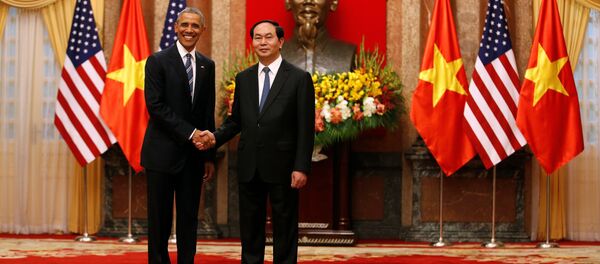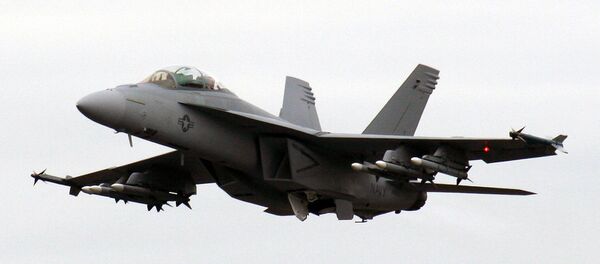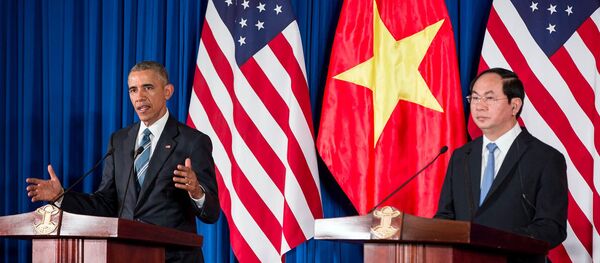The recent announcement by the US president that Washington is going to lift in full its decades-long arms embargo to Vietnam comes as a wake-up call for Russia, according to Anton Tsvetov, a researcher at the Russian International Affairs Council (RIAC).
“Moscow will have to work harder to maintain strong ties with Vietnam,” the foreign policy expert suggested in his conversation with Voice of America.
The view is echoed by another Russian expert, chairman of the Russia-Asia Pacific program at the Carnegie Moscow Center Alexander Gabuev, who suggested that “the market environment will be more competitive, but Russia has a strong position in terms of value-for-money of its systems, the Vietnamese military's long-standing ties to Russian producers and the need to train personnel.”
“A lot will depend on whether the US government will support possible sales of American systems, and what the position of the next government will be,” he said.
Vietnam has relied on Russian weaponry for almost all its entire history as an independent nation and mixing in very different US systems would add complexity and confusion to the forces operating them, Freeman told Sputnik.
“Vietnam is equipped almost entirely with Russian weapons. It does not make sense to dilute this highly desirable uniformity of equipment by adding complexity to spare parts and maintenance requirements,” he said.
Anatoly Punchuk, the deputy head of Russia’s Federal Service for Military-Technical Cooperation (FSVTS) also echoes this opinion.
“Our relations with Vietnam are of a strategic character and their further development will depend on the leadership of Vietnam. I think that this (lifting embargo) will not affect the export of Russian weapons,” he is quoted as saying by the Russian media.
The Diplomat, a current-affairs magazine for Asia-Pacific, also admits that Russia remains Vietnam’s most important long-term partner in the field of bilateral military-technical cooperation, adding that the majority of Vietnamese military hardware is Russian and Russia continues to provide military training to all of Vietnam’s military services.
The magazine provides examples of Russian military hardware operated by Vietnam’s military.
Vietnam’s People’s Air Force, it notes, currently operates 32 Russian-made Su-30MK2 fighter aircraft and is expecting delivery of four more jets by the end of 2016.
It is also interested in acquiring a squadron of Sukhoi Su-35S multirole fighter jets.
And it has recently acquired advanced anti-ship and land-attack missiles from Russia for its six Russian-made 4,000-ton Type 636 Kilo-class diesel-electric submarines (five of which have been delivered so far).
Furthermore, it adds, the VPN operates Svetlyak-class fast patrol boats, Molniya-class guided missile corvettes built with Russian assistance, and a number of other frigates and corvettes of Russian origin.
The majority of artillery, armored personnel carriers, tanks, and helicopters in the People’s Army of Vietnam is also of Russian origin.
In March, Russian Tu-95MS Bear nuclear-capable strategic bombers were refueled by Russian Il-78 tanker aircraft stationed at a military airfield at Cam Ranh Bay on Vietnam’s central coast, while conducting a patrol of the airspace near Guam.
The lifting of the arms embargo will, in all likelihood, have limited impact in expanding the military capabilities of the Vietnamese military and not affect Russian defense exports in the near term, the outlet concludes.
However, there could be some negative long-term impact on Russian-Vietnamese defense ties, it finally admits.





